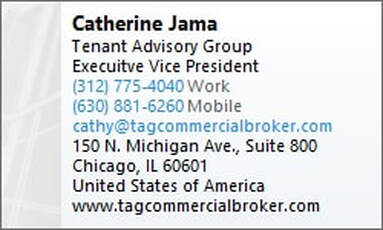When you hear a business owner say:
· “There is just not enough space here anymore.”
· “The building owner has been neglecting maintenance”
· “I think it is time explore buying my own building and need some comparisons.”
Commercial Real Estate Broker works with businesses that are looking to lease or buy office, industrial, or retail space in the Chicago area. Our process is geared to reduce the pain involved in the business relocation process.
How they Work: Starts with meeting with the client to better understand what his/her real estate needs are. They do an extensive property search to generate a list tailored to our client’s specific needs. Then a tour of the properties that have been further vetted. Once a property is selected the broker will advise our client during the negotiation process.
Matching Ideas with Resources:




 RSS Feed
RSS Feed


